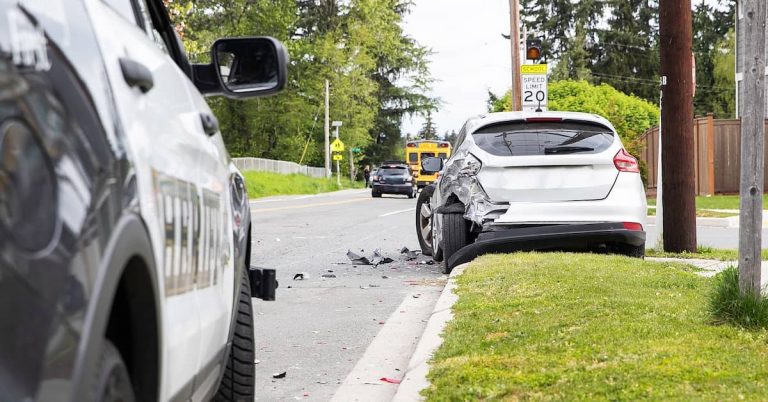A car accident settlement for hypertension in Florida can range from $20,000 to $500,000+, depending on severity, medical proof, and the at-fault driver’s insurance policy. Factors include medical expenses, lost wages, pain and suffering, and insurance limits.
If a car accident worsened your hypertension, you may be entitled to a settlement. The amount depends on medical evidence, lost wages, and legal representation. Settlements can come from Personal Injury Protection (PIP), the at-fault driver’s insurance, or a lawsuit.
Lawyer fees typically range from 30-40% of the final settlement amount. If the at-fault driver has low insurance limits, you may need to file a lawsuit to recover full compensation.
This guide will explain how settlements work, what factors impact payouts, and how to maximize compensation for your hypertension-related car accident claim.
How Hypertension Affects Car Accident Settlements

Hypertension, or high blood pressure, is a serious condition that can be aggravated by the stress and physical trauma of a car accident. If you’ve suffered a worsening of your hypertension due to a crash, you may be eligible for financial compensation. However, insurance companies often dispute these claims, arguing that hypertension is unrelated to the accident. To maximize your settlement, you’ll need strong medical evidence linking the accident to your worsened condition.
What Counts as an Accident-Related Hypertension Claim?
Not every hypertension case qualifies for a settlement. To be considered, you must demonstrate that the accident directly worsened your condition. Accident-related hypertension complications include:
- Stroke risk due to accident stress – Sudden spikes in blood pressure caused by trauma can significantly increase the risk of stroke.
- Worsening pre-existing high blood pressure – If your hypertension was stable before the crash but became uncontrollable afterward, the accident may be to blame.
- Cardiovascular complications triggered by trauma – Some victims develop additional heart-related issues, including arrhythmias, chest pain, or heart attacks, following a crash.
How Insurance Companies Reduce Payouts
Insurance adjusters often try to downplay or deny hypertension-related claims, using several tactics:
- Blaming pre-existing conditions – Insurers argue that your high blood pressure was already an issue before the accident and that the crash had little to no impact.
- Claiming stress is unrelated – They may assert that any spike in blood pressure is due to emotional stress rather than physical injury.
- Requesting excessive proof – Insurers often demand detailed medical records, expert testimony, and proof that your condition worsened immediately after the crash.
How to Counter These Tactics
To strengthen your case and secure fair compensation, take the following steps:
- Seek immediate medical attention – The sooner your condition is documented, the stronger your claim.
- Obtain expert testimony – A cardiologist or hypertension specialist can provide medical opinions linking your worsened hypertension to the crash.
- Maintain detailed medical records – Regular blood pressure readings and physician notes can prove how the accident affected your health.
What Determines Your Settlement Amount?

The value of your hypertension car accident settlement depends on several factors, including the severity of your condition, medical expenses, and the at-fault driver’s insurance policy limits.
Key Factors That Impact Your Compensation
- Medical Expenses – Hospital visits, ongoing doctor appointments, prescription blood pressure medication, and future treatment costs.
- Lost Wages & Future Earnings – If your hypertension prevents you from working or reduces your ability to perform your job, you can claim lost income.
- Pain and Suffering – Compensation for anxiety, depression, or a reduced quality of life due to your condition.
- Insurance Policy Limits – The at-fault driver’s coverage significantly impacts your potential payout.
How Insurance Coverage Affects Your Payout
Insurance plays a significant role in determining how much compensation you can actually collect. Here’s how different scenarios can affect your settlement:
- If the at-fault driver has high policy limits – You can receive compensation for medical expenses, lost wages, and pain and suffering up to the policy maximum.
- If they have low or minimum coverage – Your payout may be capped at $25,000 or less, even if your medical bills exceed this amount.
- If the driver is uninsured – You may need to rely on your Personal Injury Protection (PIP) or uninsured motorist coverage to cover medical expenses.
How Personal Injury Protection (PIP) Works
- PIP is required in some states, including Florida, and covers a portion of your medical bills and lost wages.
- However, PIP does not cover pain and suffering, which means you may need to file a lawsuit to recover full compensation.
Want a deeper look? ➡️ What Is PIP And PDL Insurance in Florida?
How does the at-fault driver’s insurance limit affect the settlement
- If the driver’s policy maxes out at $25,000, you cannot collect more than that from their insurer.
- To receive full compensation, you may need to file a personal injury lawsuit against the driver or seek compensation from your own underinsured motorist coverage.
If you’re dealing with insurance company pushback or a low settlement offer, Applebaum Accident Group can help. We connect victims with the best personal injury attorneys who understand how to fight for maximum compensation in hypertension-related car accident cases. Contact us today to discuss your case and explore your legal options.
How Much Can You Expect to Receive?
If your hypertension worsened due to a car accident, you may be wondering how much compensation you can expect. Settlements vary based on the severity of your condition, medical expenses, and lost wages. The table below provides a general range of settlement amounts for accident-related hypertension cases:
| Injury Severity | Average Settlement |
| Minor Hypertension Aggravation | $5,000 – $20,000 |
| Moderate Worsening | $20,000 – $125,000 |
| Severe Stroke or Heart Damage | $125,000 – $500,000+ |
What Affects Your Settlement Amount?
Several factors can increase or decrease your final payout, including:
- Strength of Medical Evidence – A well-documented medical history proving the accident worsened your hypertension leads to higher settlements.
- Long-Term Impact on Health – If your condition results in chronic pain, disability, or future medical expenses, your compensation will be higher.
- Ability to Work – If you can no longer work due to hypertension-related complications, lost wages and future earnings are factored into your settlement.
How Long Does It Take to Settle?
The timeline for resolving a hypertension car accident claim depends on several factors:
- Smaller cases: 6-12 months if liability is clear and medical expenses are minimal.
- Larger settlements or lawsuits: 2-5 years if negotiations fail and a lawsuit is necessary.
Many insurance companies try to delay settlements, hoping victims will accept lower payouts.
An experienced lawyer can speed up negotiations and fight for maximum compensation.
Where Will Your Money Come From?
In most cases, victims receive settlements from multiple sources:
1. Personal Injury Protection (PIP) Insurance
- PIP covers medical bills but does NOT pay for pain and suffering.
- Some states, like Florida, require PIP coverage for up to $10,000 in medical expenses.
- If your expenses exceed PIP limits, you must seek compensation from the at-fault driver’s insurance.
2. The At-Fault Driver’s Insurance Pays Next
- Policy limits matter – If the driver has only $50,000 in coverage, that’s the most you can claim unless you sue.
- Uninsured/Underinsured Motorist Coverage (UM/UIM) – If the at-fault driver lacks enough coverage, your own UM/UIM insurance may help cover medical costs and lost wages.
3. Filing a Lawsuit Against the At-Fault Driver
If insurance coverage isn’t enough, you may need to sue the driver directly.
- Is it worth it? If the driver has significant assets, a lawsuit may help you recover full compensation.
- If they have no assets, even a successful lawsuit may not result in actual payment.
Maximizing Your Compensation
Many victims settle too soon without realizing they could claim higher compensation. Applebaum Accident Group works with top attorneys who can evaluate your claim, fight insurance tactics, and secure the best possible settlement.
📞 Need legal help? Contact Applebaum Accident Group today to discuss your case and get connected with the best personal injury lawyers.
What If Your Hypertension Worsens Over Time?
One of the biggest mistakes accident victims make is settling too soon—before they fully understand the long-term impact of their injuries.
Can You Reopen Your Claim If Your Condition Gets Worse?
- No. Once you accept a settlement, you cannot file another claim for additional compensation.
- Insurance companies push for quick settlements because they know some victims develop long-term complications.
How to Protect Yourself from Settling Too Soon
✅ Wait until your doctor confirms a long-term prognosis.
✅ Get a second medical opinion from a specialist if needed.
✅ Document your symptoms over time to prove worsening health conditions.
✅ Consult a personal injury attorney to determine the best timing for settlement negotiations.
If your hypertension worsens months after settling, you may face out-of-pocket medical expenses without additional compensation. Applebaum Accident Group can help you navigate the process and ensure you don’t accept a lowball offer too soon.
What If You’re Offered a Lowball Settlement?
Insurance companies rarely offer fair settlements upfront—especially for conditions like hypertension, where they may argue your symptoms were pre-existing or unrelated to the accident.
You are NOT required to accept the first offer.
In fact, many victims settle for less than they deserve because they feel pressured by adjusters.
Steps to Take If the Offer Is Too Low
- Request a written breakdown of the offer.
- Ask for a detailed explanation of how the insurer calculated your compensation (medical costs, lost wages, pain and suffering, etc.).
- Provide medical documentation proving your worsening symptoms.
- Keep records of doctor’s visits, medications, therapy sessions, and blood pressure readings showing deterioration.
- Consult a personal injury lawyer before accepting any offer.
- A lawyer can negotiate for a higher settlement and push back against unfair insurance tactics.
Many insurance adjusters delay settlements to pressure victims into accepting lowball offers. Don’t let them rush you—your health and future medical costs should come first.
How to Maximize Your Settlement
If you want to secure the highest possible settlement for your hypertension-related car accident claim, follow these key steps:
1. Get Immediate Medical Attention
- Delays can weaken your case. Insurance companies may argue that your hypertension wasn’t caused by the accident if you wait too long to seek treatment.
- In states like Florida, you must receive medical care within 14 days to qualify for Personal Injury Protection (PIP) benefits.
2. Keep Detailed Medical Records
Consistent documentation = stronger claim. Keep track of:
✅ Blood pressure readings before and after the accident
✅ Doctor’s reports linking the accident to your worsened condition
✅ Medications prescribed for hypertension or stress-related symptoms
✅ Any therapy or lifestyle changes required due to the accident
3. Hire a Lawyer Who Specializes in Hypertension Cases
- Not all personal injury lawyers are familiar with hypertension claims, but an experienced attorney can:
✅ Prove your worsened condition was caused by the crash
✅ Handle insurance disputes and push back against lowball offers
✅ Maximize your pain and suffering compensation
Wondering who can actually help after your accident? ➡️ How To Choose Car Accident Attorney In Florida
4. Do NOT Post on Social Media
- Insurance companies monitor your social media activity. If you post about traveling, exercising, or even looking happy, they might use it as evidence to reduce your claim.
Tip: Stay offline or adjust your privacy settings until your case is settled.
Should You Settle or Go to Trial?
Settle if:
✅ The offer fully covers your medical bills, lost wages, and pain & suffering.
✅ You want to avoid the stress and delay of a trial.
Go to trial if:
❌ The insurance company denies liability or offers a lowball settlement.
❌ You have strong medical evidence proving the accident worsened your hypertension.
Take the First Step Toward Justice
If you’ve been injured in a car accident, don’t wait to seek legal help. Call Applebaum Accident Group today, and we’ll connect you with the right attorney to fight for your rights.
📞 855-225-5728 | Request Your Free Consultation Now
With Applebaum Accident Group, you get support, expertise, and access to Florida’s best attorneys – without the stress. Let us help you find the legal representation you deserve.





